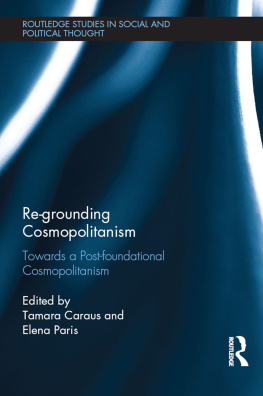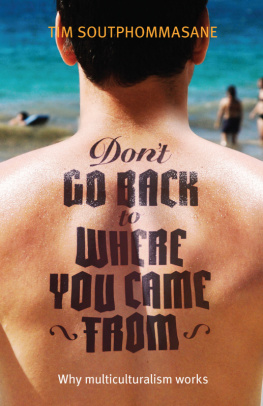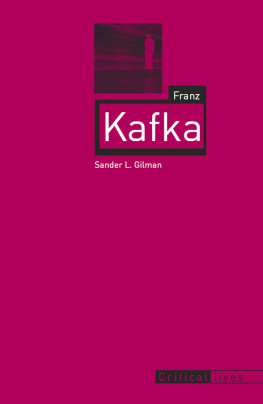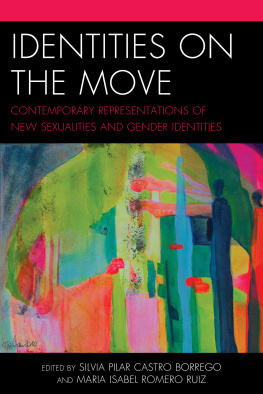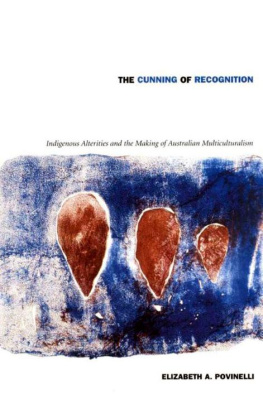Post-Multicultural Writers as
Neo-cosmopolitan Mediators
Anthem Studies in Australian Literature and Culture
Anthem Studies in Australian Literature and Culture specialises in quality, innovative research in Australian literary studies. The series publishes work that advances contemporary scholarship on Australian literature conceived historically, thematically and/or conceptually. We welcome well-researched and incisive analyses on a broad range of topics: from individual authors or texts to considerations of the field as a whole, including in comparative or transnational frames.
Series Editors
Katherine Bode Australian National University, Australia
Nicole Moore University of New South Wales, Australia
Editorial Board
Tanya Dalziell University of Western Australia, Australia
Delia Falconer University of Technology, Sydney, Australia
John Frow University of Sydney, Australia
Wang Guanglin Shanghai University of International Business and Economics, China
Ian Henderson Kings College London, UK
Tony Hughes-DAeth University of Western Australia, Australia
Ivor Indyk University of Western Sydney, Australia
Nicholas Jose University of Adelaide, Australia
James Ley Sydney Review of Books, Australia
Susan Martin La Trobe University, Australia
Andrew McCann Dartmouth College, USA
Lyn McCredden Deakin University, Australia
Elizabeth McMahon University of New South Wales, Australia
Brigitta Olubas University of New South Wales, Australia
Anne Pender University of New England, Australia
Fiona Polack Memorial University of Newfoundland, Canada
Sue Sheridan University of Adelaide, Emeritus, Australia
Ann Vickery Deakin University, Australia
Russell West-Pavlov Eberhard Karls Universitat Tubingen, Germany
Lydia Wevers Victoria University of Wellington, New Zealand
Gillian Whitlock University of Queensland, Australia
Post-Multicultural Writers as
Neo-cosmopolitan Mediators
Sneja Gunew

Anthem Press
An imprint of Wimbledon Publishing Company
www.anthempress.com
This edition first published in UK and USA 2017
by ANTHEM PRESS
7576 Blackfriars Road, London SE1 8HA, UK
or PO Box 9779, London SW19 7ZG, UK
and
244 Madison Ave #116, New York, NY 10016, USA
Sneja Gunew 2017
The author asserts the moral right to be identified as the author of this work.
All rights reserved. Without limiting the rights under copyright reserved above, no part of this publication may be reproduced, stored or introduced into a retrieval system, or transmitted, in any form or by any means (electronic, mechanical, photocopying, recording or otherwise), without the prior written permission of both the copyright owner and the above publisher of this book.
British Library Cataloguing-in-Publication Data
A catalogue record for this book is available from the British Library.
Library of Congress Cataloging-in-Publication Data
A catalog record for this book has been requested.
ISBN-13: 978-1-78308-663-4 (Hbk)
ISBN-10: 1-78308-663-7 (Hbk)
This title is also available as an e-book.
CONTENTS
Written over the past decade, this book represents the ways in which I process the key questions that have animated all my work: how to render more complex the monolithic cultural entities that national cultures are always threatening to become. It also represents my further engagement with the differences and similarities I found in moving from an Australian to a Canadian context 23 years ago.
My thanks to the Canadian Social Sciences and Humanities Research Council for funding early parts of this project.
My profound thanks to those Australian colleagues who have kept me in touch with developments in Australian literary and cultural studies: Wenche Ommundsen, Nikos Papastergiadis, Ivor Indyk, Fazal Rizvi, Gillian Whitlock, Susan Sheridan, Nicole Moore, Carole Ferrier, Brigitta Olubas, Robyn Morris, Antigone Kefala and Helen Nickas. My thanks, equally, to those Canadian colleagues who have helped me become more immersed in comparable Canadian debates: Margery Fee, Chris Lee, Renisa Mawani and Laura Moss. And profound thanks as well to my students, particularly those graduate students who entrusted me with being their supervisor or on their supervisory committees: Kim Snowden, Terri Tomsky, Daniella Trimboli, Bianca Rus and Michelle OBrien.
Versions of some of the chapters have appeared in the following:
Serial Accommodations: Diasporic Womens Writing, Canadian Literature 196 (Spring: 2008), 615.
Resident Aliens: Diasporic Womens Writing, Contemporary Womens Writing. Oxford. 2009, 3: 2846.
Estrangement as Pedagogy: The Cosmopolitan Vernacular. In After Cosmopolitanism. Edited by Rosi Braidotti, Patrick Hanafin and Bolette Blaagard. 132148. London: Routledge (GlassHouse Book), 2013.
We the Only Witness of Ourselves: Re-reading Antigone Kefalas Work. In Antigone Kefala: A Writers Journey. Edited by Vrasidas Karalis and Helen Nickas. 210220. Melbourne: Owl Publishing, 2013.
Back to the Future: Post-Multiculturalism; Immanent Cosmopolitanism. In The Cosmopolitan Ideal: Challenges and Opportunities. Edited by Sybille De La Rosa and Darren OByrne. 8197. London: Rowman and Littlefield, 2015.
Elite cosmopolitan literary intellectuals are not the only cosmopolitans in a globalizing world. (Werbner 2012, 12)
Once again, around the world we witness and endure traumatic displacements where citizens are transformed into refugees and asylum seekers on a massive scale. In terms of the global rhetoric that defined the beginning of the millennium, Europe (which symbolically includes North America and Australia) has become a focus for those seeking asylum. And yet what we see are those on the edges of Europe (those who aspired to become part of the economic European Union) create razor-wired barriers that keep out the refugees from countries torn by conflicts often created by European attempts to structure the globe in ways that would best facilitate transnational capitalism. For someone who recalls growing up in Australia alongside Hungarian refugees in the 1950s, the recent developments in Hungary and elsewhere in relation to closing borders to refugees are difficult to comprehend. As we move further into the twenty-first century, West and non-West are congealing once again into monumental phantasmatic binaries. An even more disheartening sign is that the non-West appears increasingly to be synonymous with Islaman unexpected outcome of Edward Saids analysis of orientalism that was initially such an enabling interpretive lens. In the face of these developments, the debates in neo-cosmopolitanism over the past 15 years constitute recent attempts to imagine a new critical framework that is more culturally inclusive and to think in planetary rather than global terms. Here is Gayatri Spivak on this distinction: The globe is on our computers. It is the logo of the World Bank. No one lives there; and we think that we can aim to control globality. The planet is in the species of alterity, belonging to another system; and yet we inhabit it, indeed are it. It is not really amenable to a neat contrast with the globe (2012, 339).
What might it mean to assume an approach in which citizens of and in the world include all its parts? To unpack this last statement, the underlying concern is: what might it mean to consider everyone as having these rights? Due to various histories of imperialism and their latest incarnation in a globalization fueled by capitalism, as well as the structures of diverse nationalisms, this is a complex question to address. Furthermore, how might literary and cultural studies be situated in relation to these concerns as part of a pedagogical project? As Walter Mignolo reminds us, Cosmopolitanism [] is not something that is just happening. Someone has to make it happen (2012, 86). One way to narrow the analytical task is to ask whether a seminar on neo-cosmopolitan literature would differ from one on world literature and how a reimagined post-multiculturalism might relate to either.


